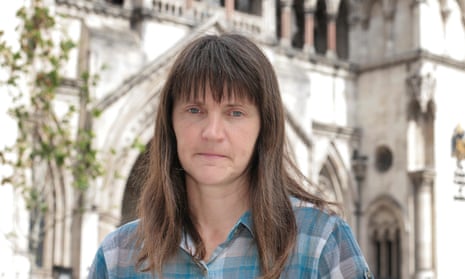Women who were deceived into sexual relationships with undercover police officers have called for an urgent meeting with the home secretary over fears the official public inquiry lacks openness and fails to recognise claims of institutional sexism within the Metropolitan police.
In an open letter to Amber Rudd, 13 women who had relationships with men they did not know were undercover officers criticise delays and raise concerns over the suitability of the new chair of the undercover policing inquiry, Sir John Mitting QC.
Theresa May set up the inquiry in 2014 when she was home secretary, after a series of revelations about the activities of undercover officers who were sent to infiltrate political groups. The spies had deceived women into forming intimate relationships, collected information about grieving families such as the parents of the murdered teenager Stephen Lawrence, and stolen the identities of dead children.
In the letter, the women claim that, two years into the inquiry, the names of more than 1,000 groups they believe were spied on by political policing units, still have not been made public, nor have the cover names used by the officers.
Without this crucial information, they claim, others will not be able to come forward and “it will not be possible to identify the true scale and nature of the abuses” and “women and children may be left unable to make sense of events in their lives”.
The women claim since Mitting took over the inquiry chair in May “there has been a significant shift towards greater secrecy”. They point out he has a background as vice-president of the Investigatory Powers Tribunal, which hears complaints about the intelligence agencies, and claim he is in danger of turning the public inquiry into a secret one.
The letter also claims Mitting is a member of the men-only Garrick club, and questions “how someone who accepts the principles of membership of such a club” is suited to investigating “sexist practices and making judgments on what we consider to be clear evidence of institutional sexism within the police and wider legal system”.
The women say the Metropolitan police have been allowed to set the pace of the inquiry, with severe and ongoing delays and applications for secrecy. Police have argued that much of it should be held in secret to protect the identities of the undercover officers and the techniques they used. Public evidence is now not due to be heard until 2019, and the inquiry not completed before 2023, the women say.
“The inquiry is an investigation into serious wrongdoing by the MPS yet this same body maintains control of much of the evidence,” the women say.
“A secret inquiry is not what was announced. It’s not what we thought we were getting,” a woman using the pseudonym Lisa told the Guardian. The inquiry had “taken a disturbing turn”, she said. “It seems that the scales have tipped towards protecting the officers over protecting the public.”
She added: “One side holds all the cards.”
Mitting’s appointment, to replace Lord Justice Pitchford who retired on health grounds, had “horrified” the woman. “It seems to have changed the whole atmosphere. It is very, very upsetting and we are all quite angry about it.” The women wanted a face-to-face meeting with Rudd to discuss concerns, so that the inquiry did not become “a whitewash”, she said.
Timing was crucial because Mitting was ruling on secrecy issues which would set the tone for the rest of the inquiry, said Kate Wilson, an environmental campaigner, who was the first to win her case against Scotland Yard. The home secretary had to step in now, she said. “It is becoming a farce.”
The letter complains that in the recent two-year update produced by the public inquiry in June, the word “women” does not appear at all, there is no reference to the “long-term abuse of women” and a timeline in the document failed to include the public apology issued to the women by the Metropolitan police, which “acknowledged that we were subject to human rights abuses by undercover police officers”. These omissions made it clear the serious abuse the women suffered at the hands of the police ”were not taken seriously by the inquiry”, the letter states.
A Home Office spokesperson said Mitting, an “extremely experienced” high court judge who “has demonstrated his fairness and independence throughout his career”, had the home secretary’s full support .
“We are confident that the inquiry will provide both a deep understanding of historical failings and make robust recommendations to ensure unacceptable practices in undercover policing are not repeated,” the spokesperson said.
It was an “extensive and complex” inquiry and it was important that it “proceeds swiftly and makes recommendations as soon as possible”.
A spokesperson for the inquiry said: “The inquiry remains committed to discharging its terms of reference, which includes examination of the motivation for undercover police operations and their impact on individuals. There has been no change in its approach to anonymity.
“Applications for anonymity are being considered on their individual merits, on a case-by-case basis.“The names of the main groups infiltrated by officers whose cover identities are being published will continue to be published as anonymity applications are decided.”
